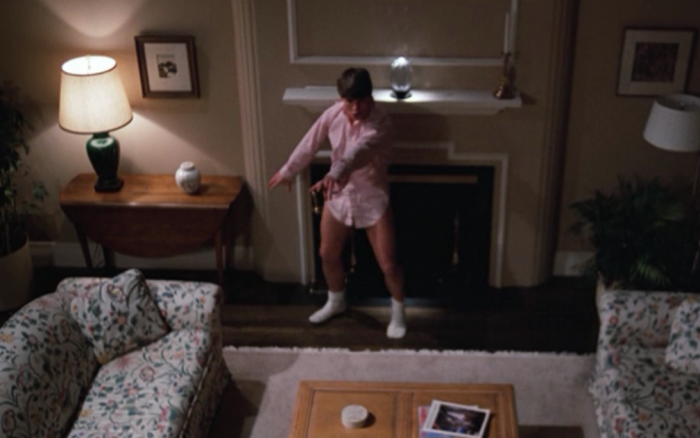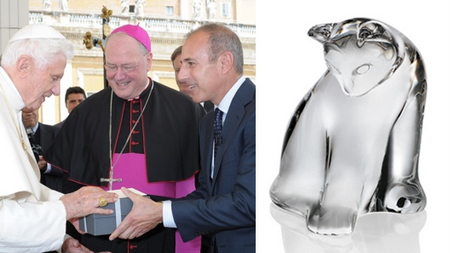The image above is from the movie Risky Business. Aside from launching the career of Tom Cruise, there was also a critical plot item: an expensive glass egg on the mantle. That egg was made by the artists of the Steuben Glassworks in Corning NY. This week the parent company Schottenstein announced that Steuben would be closing its doors forever:
Glass art manufacturer Steuben Glass Company, which has been based in Corning, N.Y., 37 miles southwest of Ithaca, since 1903, will close in November, parent company Schottenstein Stores Corp. announced Aug. 31 in a press release.
“The difficult economy, declining sales and high expenses continue to have a negative impact on the Company’s profitability. Our employees and Local 1000 worked in cooperation with the company to change the trend but the efforts at restructuring and repositioning the brand were unsuccessful,” Mark Samitt, president of Steuben, LLC, said in a statement.
Steuben has long been symbolic of the pinnacle of artistic glassmaking, and was often the gift given by presidents to dignitaries, including Martin Luther King and Queen Elizabeth II:
U.S. presidents often gave Steuben crystal to foreign heads of state as gifts, including Queen Elizabeth II of England, the Shah of Iran and Emperor Hirohito of Japan. As of 2000, over 70 countries had Steuben glass in their state collections, according to a company factsheet.
Earlier this year the Today Show sent Matt Lauer and Al Roker to Rome to meet Pope Benedict. Here is Matt Lauer giving the Pope a Steuben ‘Curious Cat’.
In the ‘Royal Gift Primer’, the author notes:
When Charles and Diana married in 1981, they received over 5,000 gifts, including a $75,000 Steuben glass bowl chosen by Nancy Reagan, a modest silver picture frame from Princess Grace of Monaco and clothing stands from the King of Tonga. An American oil man gave the young couple a share in an oil well that was supposed to generate over $50,000 a month.
Corning Inc. (full disclosure: I have been employed with Corning since 2008) had bought Steuben in 1918 and sold a 80% share of the company to Schottenstein in 2008 in the hopes that a more focused owner would help revitalize the business:
“The last several years we had Steuben, it was losing money,” Dunning said. He said that another motivating factor in the sale was a desire by Corning to get rid of its consumer products holdings.
“[The sale] was basically because it no longer fit into our business model. It was a consumer products type of business, and we were no longer involved with that,” Dunning said. He noted that in 1998 Corning sold its lines of CorningWare and Corelle tableware and Pyrex cookware to World Kitchen.
Corning bought back the Steuben name from Schottenstein, and the closure has no impact outside of the Steuben business.
While the closure of Steuben has little effect outside of the 60 people employed making the glass that generated a few million dollars in annual sales, it is more the loss of a cultural and artistic icon in the glassmaking world that is significant. It represents a distinct shift in values, and what people want above their fireplace. As Steuben said:
If you think about buying habits — disposable income — folks are more apt to buy computers and large screen televisions [than glass art].


